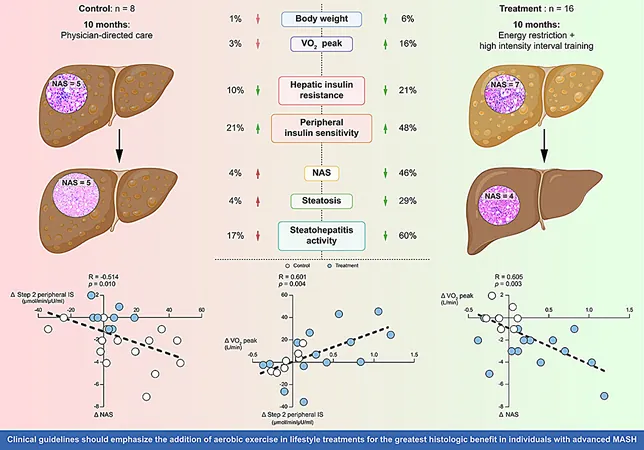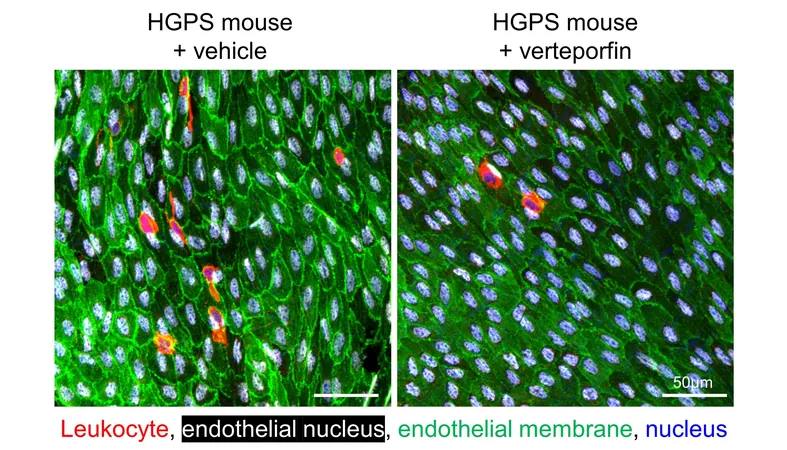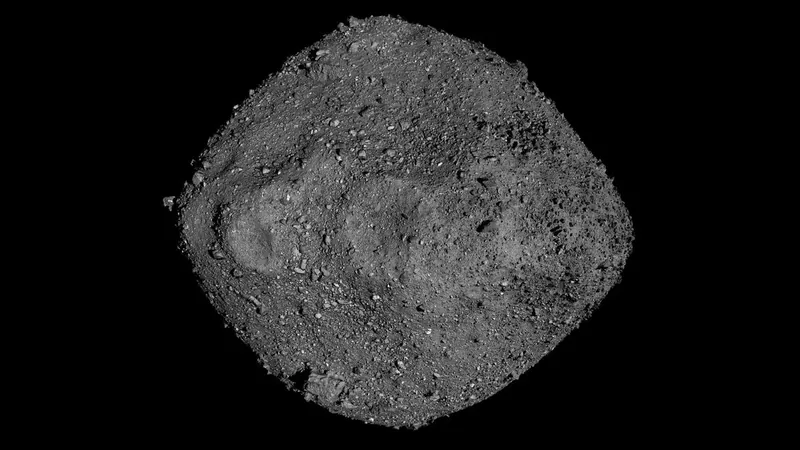
Breakthrough Study Reveals Shocking New Approach to Heal Liver Damage!
2024-10-09
Author: Siti
Introduction
In a groundbreaking new study from the University of Missouri School of Medicine, researchers have unveiled an effective method for treating liver disease through intensive lifestyle interventions that combine a restricted diet and high-intensity interval training (HIIT). This exciting development could change the lives of countless individuals suffering from liver issues, especially metabolic dysfunction-associated steatohepatitis (MASH), a growing concern linked to obesity.
Study Design and Results
Over a 10-month period, 24 patients diagnosed with MASH were divided into two groups. One group embraced a rigorous exercise regime paired with a carefully designed diet, while the other continued with standard care practices. The results were staggering: those who engaged in the HIIT program and adhered to their dietary restrictions saw significant improvements in their liver health when compared to the control group.
Innovative Research Approach
Published in the prestigious Journal of Hepatology, this study marks a pivotal point in liver disease research. Unlike previous studies that focused solely on either diet or exercise, this innovative research evaluated the combined effects and utilized cutting-edge technologies, including metabolic imaging, to assess liver recovery through diagnostic biopsies. These advanced techniques provided measurable data on liver inflammation, fat accumulation, and fibrosis, charting a comprehensive view of liver health.
Expert Insights
Study author Elizabeth Parks, Professor of Nutrition and Exercise Physiology, noted, “Previous research typically examined diet or exercise independently. Our study offers a holistic perspective, showcasing how both components can work together effectively.”
Remarkable Outcomes
Not only did participants in the treatment group lose between 13-22 pounds and gain muscle mass, but they also demonstrated superior cardiovascular health, as measured by peak oxygen uptake. In contrast, the control group saw minimal weight loss of only 0-9 pounds. Remarkably, insulin sensitivity—a crucial factor in energy metabolism—improved significantly for those engaged in the lifestyle intervention.
Significance of Findings
As the rates of obesity, high blood pressure, and type 2 diabetes soar, the rise of fatty liver disease has become alarmingly common. “From our findings, it's clear that lifestyle changes are pivotal in treating MASH and may even reverse liver damage, offering protection against its future onset,” Parks emphasized.
Conclusion
While further research is essential to authenticate and broaden these findings, this study offers a glimmer of hope for patients facing chronic liver conditions. “Our results indicate that liver disease does not have to lead to a life-long battle,” Parks affirmed. This revolutionary approach could be the key to combating the escalating liver disease crisis in America. Don't wait—discover how you can take charge of your liver health today!





 Brasil (PT)
Brasil (PT)
 Canada (EN)
Canada (EN)
 Chile (ES)
Chile (ES)
 España (ES)
España (ES)
 France (FR)
France (FR)
 Hong Kong (EN)
Hong Kong (EN)
 Italia (IT)
Italia (IT)
 日本 (JA)
日本 (JA)
 Magyarország (HU)
Magyarország (HU)
 Norge (NO)
Norge (NO)
 Polska (PL)
Polska (PL)
 Schweiz (DE)
Schweiz (DE)
 Singapore (EN)
Singapore (EN)
 Sverige (SV)
Sverige (SV)
 Suomi (FI)
Suomi (FI)
 Türkiye (TR)
Türkiye (TR)